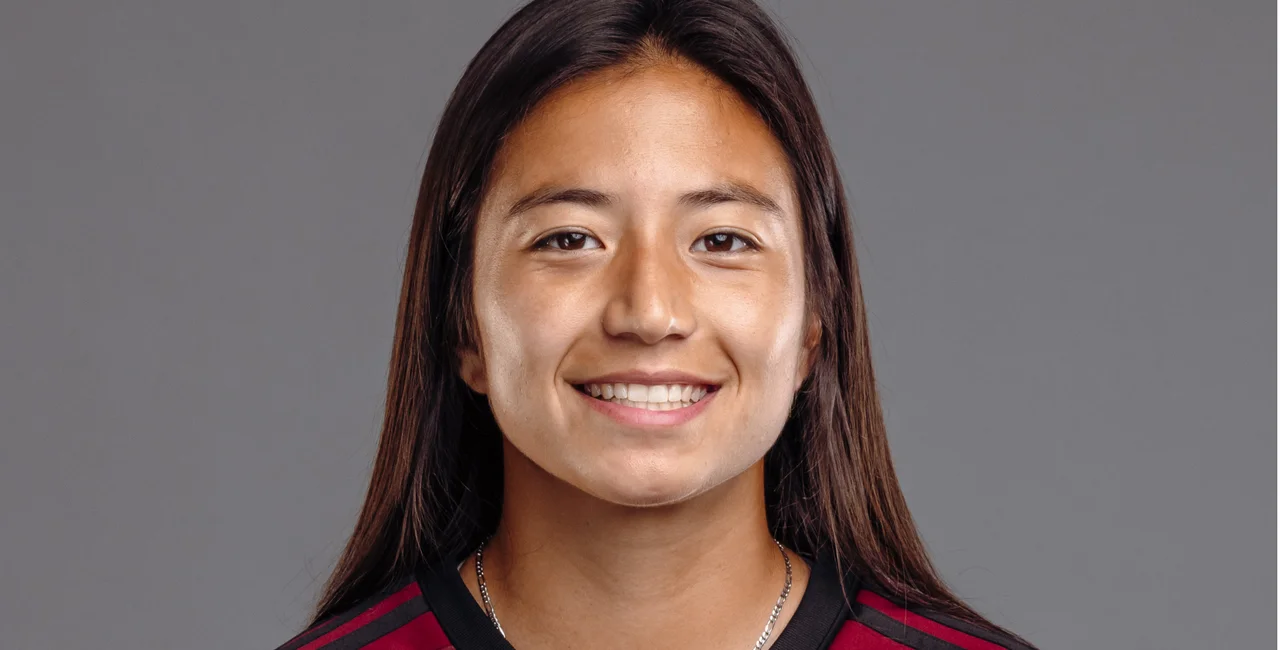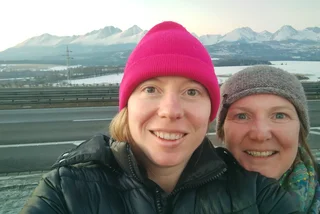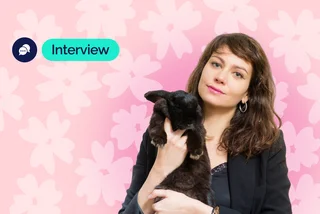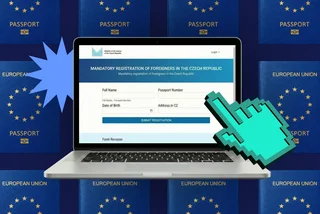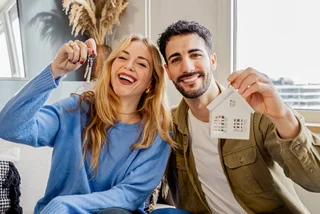Lauren Chang is an American soccer player from Georgia, U.S., who played soccer collegiately at South Carolina University before joining the AC Sparta Praha Football team.
Although Lauren has been in Prague only half a year, she has become an active member of the expat community. In August, she took part in the Pride Expat Panel which discussed inclusivity in the Czech workplace.
PARTNER ARTICLE
We sat down with Lauren to discuss her impressions of Prague, gender equality in sports, and LGBTQ+ rights in the Czech Republic.
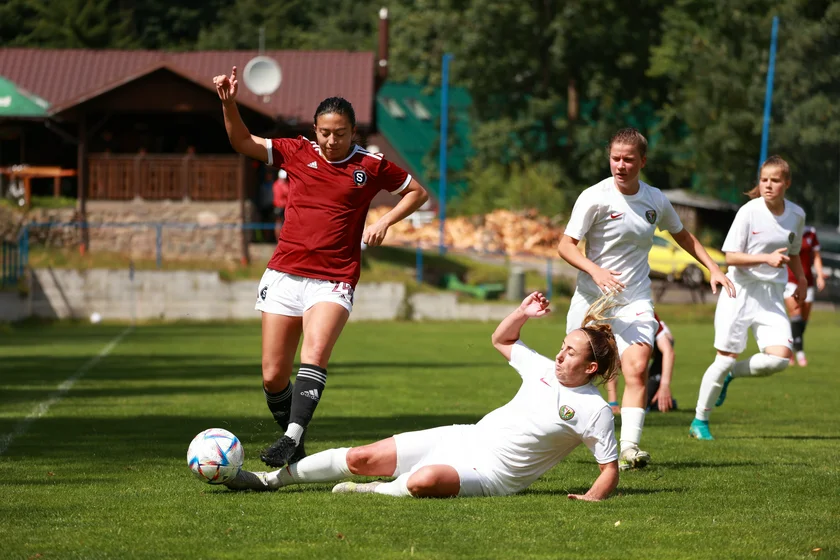
Tell us a few words about yourself. When did you come, why, and from where did you relocate?
I moved to Prague six months ago from Georgia, U.S., after I signed with Sparta Praha women’s soccer team. I am a 23-year-old with a bachelor's degree in political science and a master's in business. Although I definitely have soccer goals, I am also planning on going to law school and taking over the world! As a kid, I always thought I will become either a president or a soccer player.
Having spent half a year here, what do you like the most about living here?
The thing that really stands out to me is the public transport system. Everything is reachable within 10-15 minutes.
I also love that there are so many different neighborhoods and each one is so different. I love that within 5-10 minutes you can have an absolutely different Prague experience.
What is your favorite neighborhood?
Letná. There are so many good cafes and every day I would discover a new place simply by walking a little bit farther than the day before. I really like Czech food and the culture around food in general. There are so many nice places in Prague with great gardens, and in six months I still haven’t run out of new places I want to try and things I want to do.
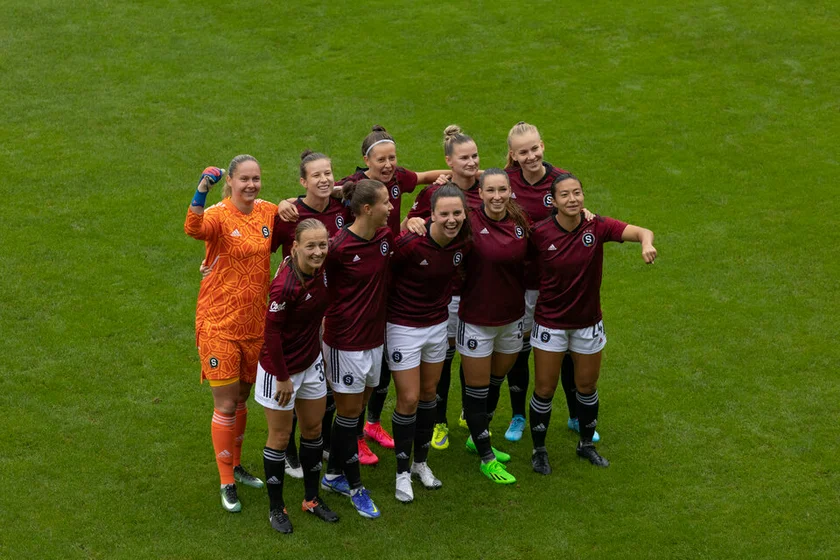
What are the locals like?
The meanest people in Prague are the old ladies at the grocery stores, I am terrified of them. In general, I noticed people here are really cold at first. I am from the south in the U.S., and if I am in an elevator with another person, you always make small talk. You are always chitchatting, even if you don’t know the person. But here, people say that with Americans it’s hard to tell if we are being fake or not because we are always smiling and talking to everyone.
Do you feel the impact of Czech communication culture on you?
Oh my gosh, a lot! When I got home, I found myself not talking to people. Actually, on my connecting flight from Amsterdam – and the whole plane was all Americans – I was just sitting there with my headphones in and then someone says, “Hi, where are you traveling from?” I just said “Prague”, a one-word answer, which felt so awkward.
What about the language? How do you communicate with your teammates?
When I joined the team, I used to be the only non-Czech speaker. I had no other choice but to learn to survive because all the practices are in Czech. Sometimes a teammate would whisper to me the instructions, other times you just have to go with the flow.
Were you prepared to just be thrown into the deep end like this?
No, I wasn’t prepared for that at all. I thought someone would still help me with interpreting. Some of my teammates were very welcoming, and some were reluctant or shy to speak English. Meanwhile, I have really hard time with Czech although I learnt the soccer basics. I was studying Chinese in college, and I would tell my teammates, “Guys, your language is way tougher than Chinese.”
And in general, how did it feel to move abroad? Were there challenges beyond the language barrier?
First two months were really overwhelming. I just moved to a country I have never been to, I don’t know anyone, I don’t speak the language. Although it was a challenge, it was something I really wanted to do and see if I could survive.
How did you make friends here?
I was very nervous to put myself out there and even googled how to make friends! One of the results was go to a restaurant or a bar and start making conversation with people. It seemed like a complete nightmare to me. Instead, I joined this non-profit group called Global Shapers Prague. We work on different projects there, and it is all volunteer based. I missed that part of my life where I would do more intellectual kind of activities.
You were a speaker at the Prague Pride Expat Panel Discussion organized by Global Shapers, what was it like?
Together with Prague Pride we had a great intersectional panel. Not so many times you will have expats who are a part of the LGBTQ+ community speak about their very unique experiences. The panel had a moderator and 4 expat panelists from Taiwan, Australia and two from the U.S.
What were the key issues addressed by the panel?
We talked about the work culture in the Czech Republic and the response to LGBTQ+ persons. We talked about the importance of getting a feel of the company and distinguishing if they actually care about the people who work for them or if they just throw money into some annual pride event for the looks of it.
One of the panelists, Sam, said that when he interviewed for the company, he directly asked how the company’s supports LGBTQ+ workers. And I think it was brilliant that he was right off the bat – it is such a great way to figure out what it would be like working there before you get in. Another panelists discusses how they “come out” to their coworkers. He said that they would rather feed their coworkers small bits of information like “I went for this drag show the other day” or use gender-neutral terms like “partner” rather than just announce “I am gay”.
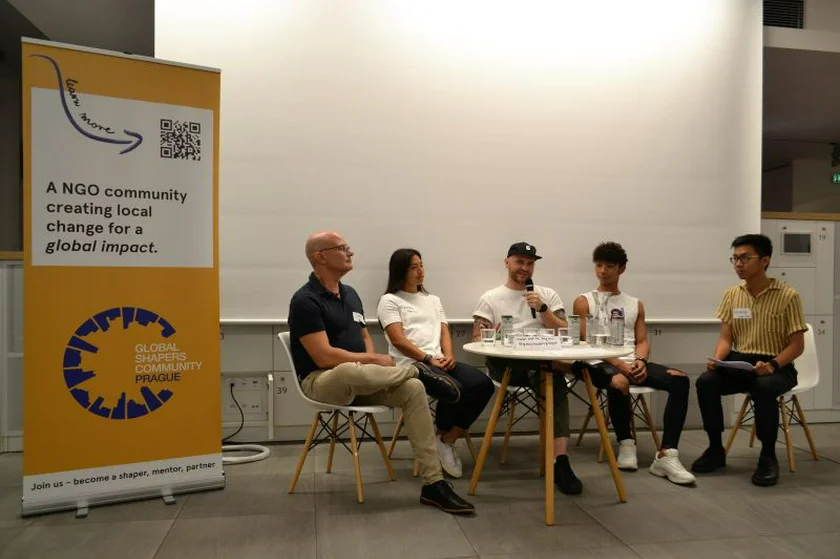
Would you say the Czech society is more or less open toward LGBTQ+ people than where you come?
I think it is a bit different in the U.S. Here I know some people who are out to their friends but not to their parents. From what I heard about Czech culture, the older generations are rather traditional: they want the kids to get married, have kids, and so on. In the U.S., parents are way more accepting. My friends say that the attitude here changes with people under 40, but people over that age are very reluctant to accept and embrace it. The new generation, on the other hand, are so passionate about gay rights, so I think the change will come to the Czech society sooner or later. I was shocked to find out that gay marriage is not legal here!
Was it easy for you to come out to your parents?
When I was in college, I began dating a girl, and after a while, it felt like I was leading a double life. I realized I should tell my parents and I did not want to wait. I told them that I don’t know what I am, but I am not straight. My dad had a funny reaction, he said, “I always knew no boy would be good enough for you.” They were in shock for a second, but shortly after my mom was asking about my classes. Although it shouldn’t be such a big deal to tell your parents, I was really nervous, but I am very lucky that they are so understanding.
Would you say that LGBTQ+ expats have no problem living in Czechia and are totally accepted by the Czech society?
Yes, I would say so. Only one panelist spoke about a negative experience he once had. He was taking an Uber, and one of their friends could speak Russian and they heard the driver speak about homosexuality in a demeaning way while on the call with someone. The friend who could understand the language called out the driver, and they left the car. But this was the only experience, which happened years ago.
I feel like in the Czech Republic, people will know you are gay, but you are not supposed to talk about it or almost acknowledge it. And I believe we should celebrate diversity. One of my friends told me that for the older people with the Soviet mentality, who in their time could not stand out, be different, and be themselves, it is very hard to grasp and accept current culture of self-expression and individuality.
What are your impressions from the sports culture in the Czech Republic as compared to the U.S.?
Obviously, they don’t have American football and baseball, both of which I enjoy a lot. Women’s football is not talked about a lot, whereas in the U.S. soccer is not the number one sport, but women’s soccer is very popular. It is in the news all the time, and there is also a lot of fan loyalty. Which is not at all the case here.
Does it upset you to see this kind of drastic difference?
It does. I feel if people just came to just one game, they would realize that we play the same football as men. It saddens me because I see what the potential is when I compare it to the U.S. It is so popular among young girls there, they look up to the players, and it changes their mindset knowing you could play for the national team and people will watch it and enjoy it. This is another cultural gap between east and west; here many parents do not want girls to be into “masculine” sports. Although it is changing for the better, it is still 10 years behind the U.S.
It is also much nicer atmosphere at the women’s soccer game: there are no shirtless men, drinking beers, and shouting derogatory words. It is in general more supportive and fun.
It seems like you have a generally very positive view of women’s soccer in the U.S. But what are your thoughts on gender pay gap in sports, do you see it as an issue in the U.S. or here?
I guess I am praising the U.S. more now, I used to think it was so behind, but after moving here, I think, “You know what, maybe it wasn’t so bad.” It is always a work in progress, but I think it’s amazing how the U.S. national team has taken it upon themselves to be like, “This ends with us.” They are currently paving the way for the next generation to have equal rights and be compensated fairly, just recently they negotiated the increase in the minimum wage for the players.
What do your teammates say about the issue?
They definitely look up to the United States, and they see it as an example of where they can be in a couple of years.
Thank you! Where can we follow Sparta Praha and find info on the matches?
There is information on the official website of Sparta Praha and our Facebook page. On Sept. 21, we will play against Italian AS Rome in Letná stadium.












 Reading time: 8 minutes
Reading time: 8 minutes 